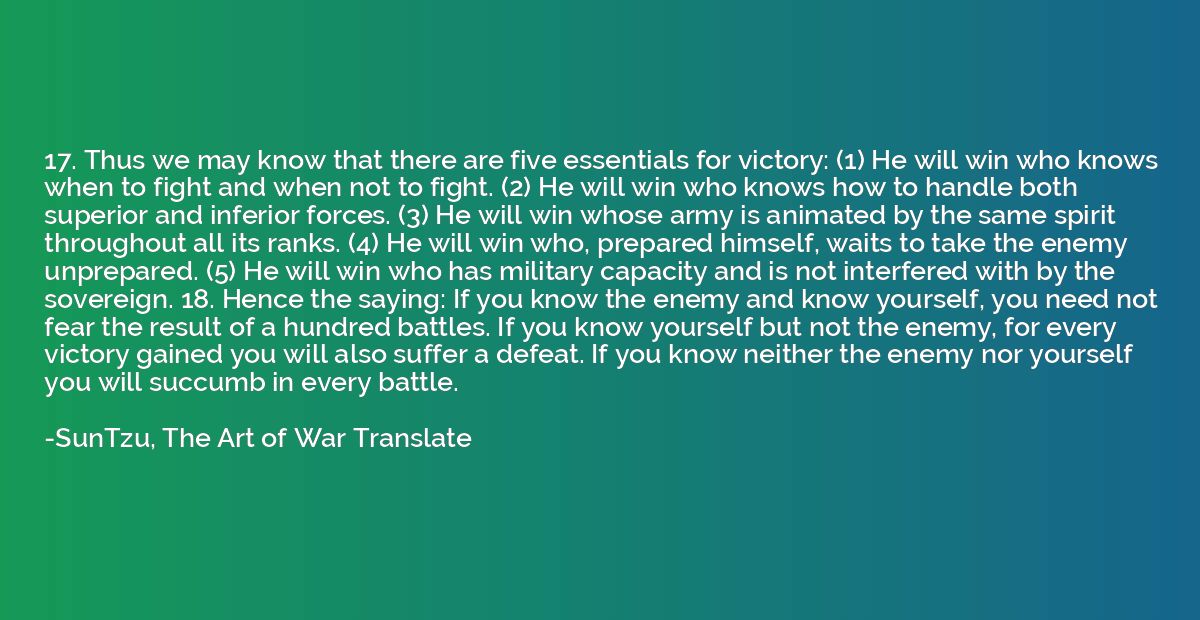Quote by SunTzu, The Art of War Translate
17. Thus we may know that there are five essentials for victory: (1) He will win who knows when to fight and when not to fight. (2) He will win who knows how to handle both superior and inferior forces. (3) He will win whose army is animated by the same spirit throughout all its ranks. (4) He will win who, prepared himself, waits to take the enemy unprepared. (5) He will win who has military capacity and is not interfered with by the sovereign. 18. Hence the saying: If you know the enemy and know yourself, you need not fear the result of a hundred battles. If you know yourself but not the enemy, for every victory gained you will also suffer a defeat. If you know neither the enemy nor yourself you will succumb in every battle.

Summary
This quote, from the ancient Chinese military treatise "The Art of War" by Sun Tzu, highlights five essentials for achieving victory in warfare. The first essential emphasizes the importance of strategic decision-making, knowing when to engage or avoid battles. The second essential focuses on being capable of handling both strong and weak forces skillfully. The third essential stresses the unity and morale within an army to ensure collective success. The fourth essential suggests that the element of surprise can be advantageous, by striking an unprepared enemy. The fifth essential indicates that military leadership should possess capabilities and autonomy without interference from the ruling authority. Ultimately, the quote emphasizes the significance of understanding both oneself and the enemy to achieve victory on the battlefield.














